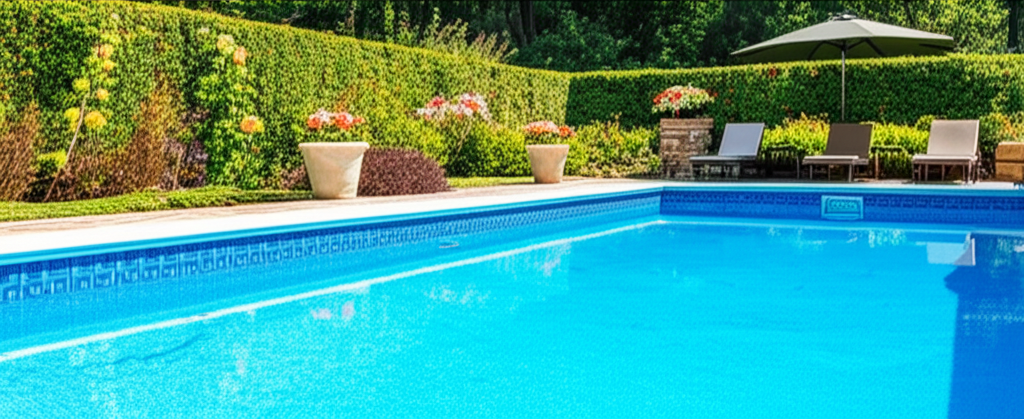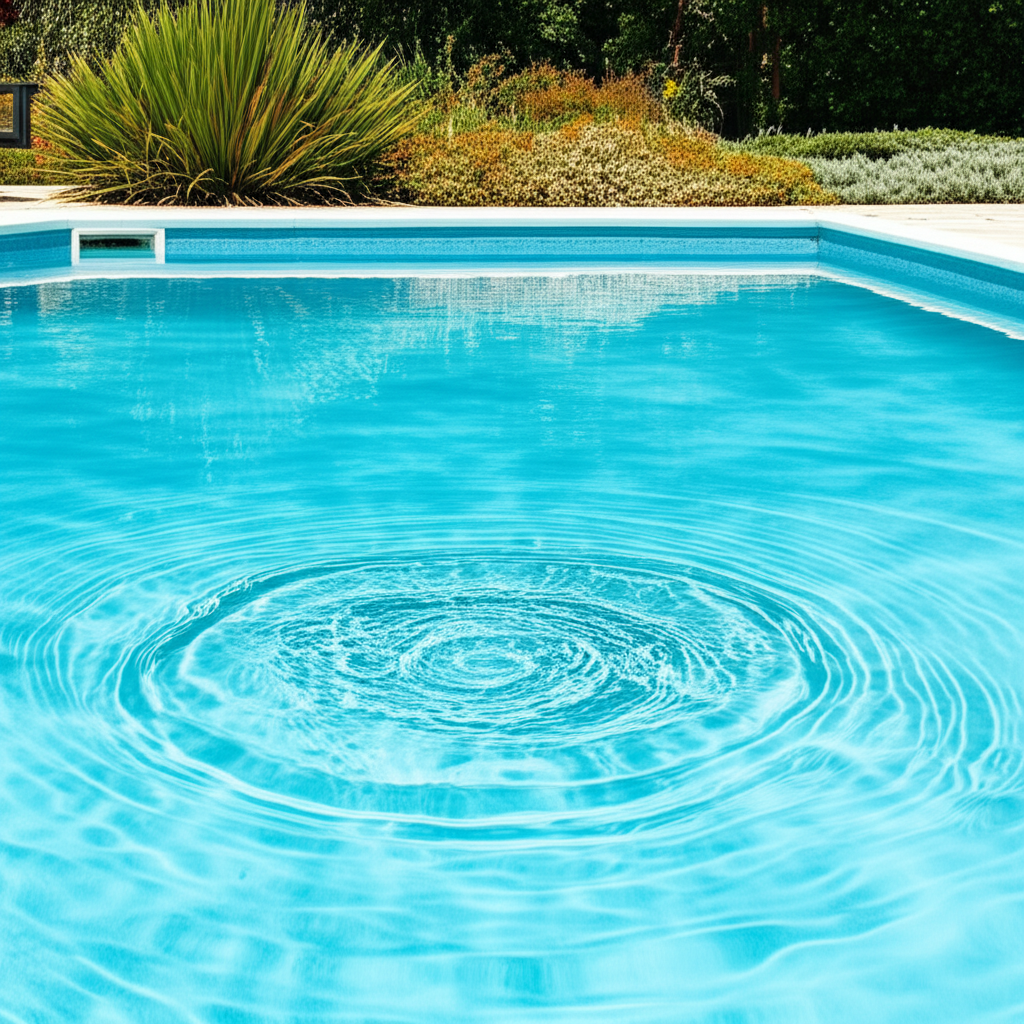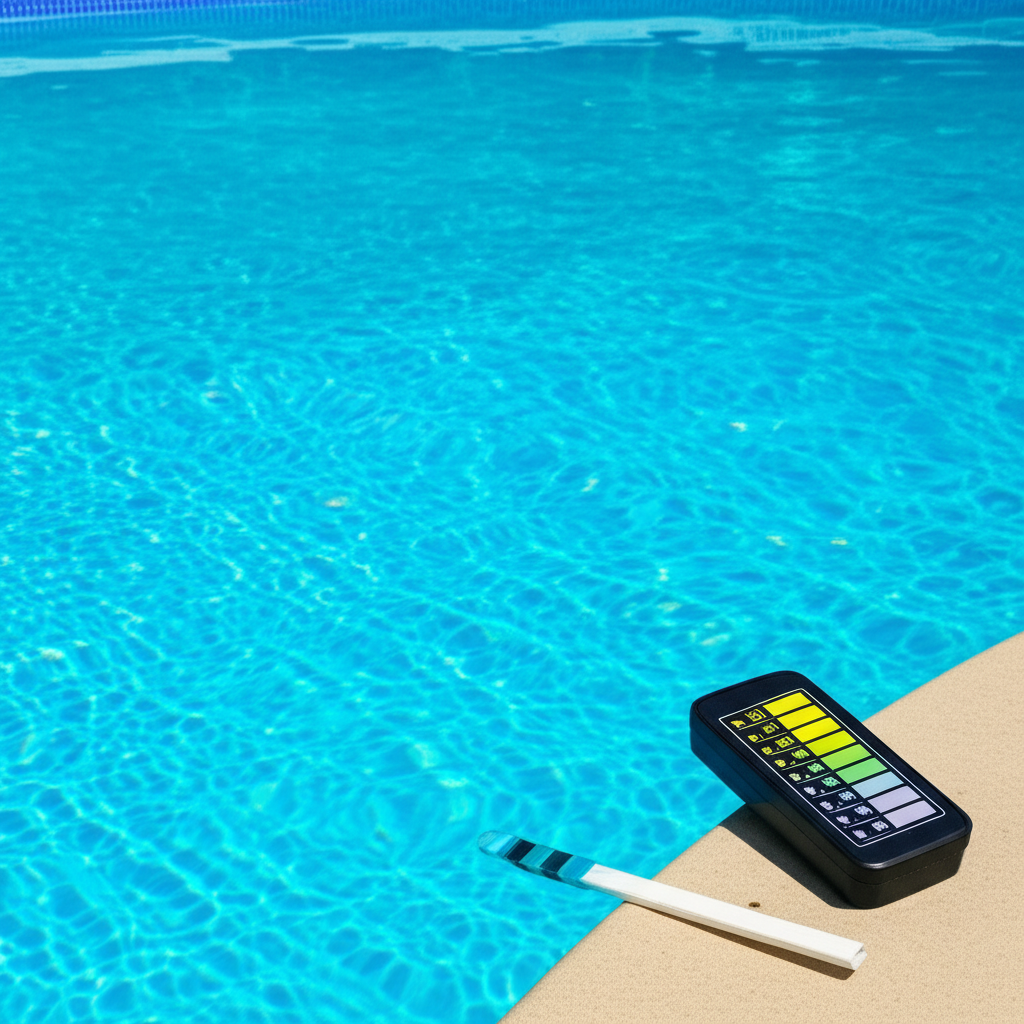- The Persistent Problem of Water Bugs
- Common Pool Pests and Their Habits
- Effective Strategies for Keeping Bugs Out of Your Pool
- 1. Robust Filtration and Circulation
- 2. Maintain Optimal Chemical Balance
- 3. Regular Skimming and Netting
- 4. Perimeter Control and Environmental Management
- 5. Addressing Algae Growth
- 6. Consider Pool-Safe Insecticides (Use with Caution)
- Embracing a Long-Term Clear Pool Strategy
Keeping Bugs Out of your pool is a top priority for any pool owner seeking pristine water and uninterrupted enjoyment. There’s nothing quite as frustrating as stepping out for a refreshing dip only to find unwelcome guests – a swarm of unidentifiable insects, or worse, critters that sting or bite. Achieving and maintaining a crystal-clear, bug-free pool requires understanding why these pests are attracted in the first place and employing a multi-faceted approach to deterrence and removal. This ultimate clear pool guide will equip you with the knowledge and strategies to reclaim your aquatic oasis from the creepy crawlies.
The Persistent Problem of Water Bugs

Water bugs are a broad category encompassing various insects that thrive in or around water. Your swimming pool, with its still or slow-moving water, can become an irresistible breeding ground or resting spot if not properly managed. From the surface-skimming whirligig beetles to the bottom-dwelling aquatic larvae, these unwelcome visitors not only look unsightly but can also pose health risks or simply make your swimming experience less enjoyable. Understanding the most common types of Water Bugs that plague pools is the first step in formulating an effective counter-attack.
Common Pool Pests and Their Habits
Several types of insects frequently turn up in pools, each with its own preferred conditions:
Water Boatmen: These oval-shaped insects typically swim just below the surface, using their long, oar-like hind legs. They primarily feed on algae and microscopic organisms. If you have an algae problem, you’re likely to find water boatmen.
Backswimmers: Often mistaken for water boatmen due to similar size and shape, backswimmers are easily identified by their habit of swimming upside down. They are predatory, feeding on other insects and even small fish. Be cautious, as backswimmers can deliver a painful bite similar to a bee sting if handled.
Mosquitoes: Stagnant water is a mosquito breeding heaven. Even small puddles around your pool deck can harbor mosquito larvae (“wigglers”). Adult mosquitoes are not just annoying; they are vectors for various diseases.
Gnats and Midges: Attracted to moisture and often organic matter, these tiny flying insects can appear in swarms, especially at dusk. While generally harmless, they are a nuisance and can fall into the pool.
Diving Beetles: Larger than water boatmen, these black or dark brown beetles are powerful swimmers and are predatory. They can be quite startling when encountered in the water.
Effective Strategies for Keeping Bugs Out of Your Pool
A comprehensive plan for Keeping Bugs Out involves both preventative measures and direct intervention. By combining several strategies, you create a less hospitable environment for pests.
1. Robust Filtration and Circulation
One of the most fundamental steps in preventing insects is ensuring your pool’s water is constantly moving and properly filtered. Stagnant water is an open invitation for many pests, especially mosquitoes.
Run Your Pump: Operate your pool pump and filter for at least 8-12 hours per day, or even 24/7 during peak bug seasons. This continuous movement discourages insects from landing, laying eggs, or congregating.
Clean Your Filters: Regularly clean or backwash your pool filter. A dirty filter reduces efficiency, leading to poorer circulation and cloudier water, which can attract bugs.
2. Maintain Optimal Chemical Balance
A well-balanced and properly sanitized pool is less appealing to Water Bugs because it inhibits the growth of their food sources, particularly algae.
Chlorine Levels: Keep your free chlorine levels between 1-3 ppm. Chlorine kills bacteria and algae, which are primary attractants for many insects.
pH Levels: Maintain a pH between 7.4 and 7.6 for optimal sanitizer effectiveness and swimmer comfort.
Algaecide: Regular use of a quality algaecide, especially during warm weather, will prevent the algae blooms that water boatmen and other bugs feed on.
Shocking: Periodically shock your pool to eliminate organic contaminants that can serve as food for insects and make the water cloudy.
3. Regular Skimming and Netting
Physical removal is often the quickest way to get rid of existing bugs and prevent them from multiplying.
Daily Skimming: Use a long-handled skimmer net to remove leaves, debris, and any visible bugs from the surface of your pool daily. This is especially crucial for mosquitoes and insect eggs.
Empty Skimmer Baskets: Regularly empty your skimmer and pump baskets. Accumulated debris can block water flow and decompose, creating an attractive environment for insects.
Vacuuming: Vacuum your pool regularly to remove any bugs or organic matter that has settled on the bottom.
4. Perimeter Control and Environmental Management
Look beyond the water’s edge to address potential bug attractants in your immediate surroundings.
Landscaping: Trim back shrubs, trees, and tall grasses around the pool area. Overhanging branches can drop leaves and debris, and dense foliage provides shelter for insects.
Lighting: White lights attract insects. Consider switching to yellow bug lights around your pool area, or use downward-pointing lights to minimize their appeal.
Pool Covers: Use a solar cover or safety cover when the pool is not in use. This acts as a physical barrier, preventing insects from landing on the water. However, ensure the cover doesn’t accumulate standing water on top, which can become a breeding ground itself.
Drain Standing Water: Eliminate any standing water sources on your pool deck, in planters, or in low-lying areas. These are prime mosquito breeding spots.
5. Addressing Algae Growth
Algae is a primary food source for water boatmen and can attract other Water Bugs. If you consistently find these insects, check for any signs of algae, even if the water appears clear. Green, yellow, or black patches are obvious indicators, but sometimes algae can be microscopic and still be present. Ensure your chlorine levels are adequate and that you’re brushing your pool surfaces regularly.
6. Consider Pool-Safe Insecticides (Use with Caution)
As a last resort for persistent infestation, some pool-specific insecticides are available. These products are designed to be safe for pool water and can help reduce the insect population. Always read and follow the manufacturer’s instructions carefully, ensuring the product is indeed safe for swimming pools and won’t affect water chemistry or swimmer health. Apply them as directed, typically around the perimeter or directly to the water.
Embracing a Long-Term Clear Pool Strategy
Ultimately, an ultimate clear pool is the result of consistent effort and a proactive mindset. No single solution will permanently solve the problem of pool pests. Instead, integrate the strategies mentioned above into a regular pool maintenance routine. By understanding the habits of Water Bugs and diligently applying preventative measures, you can dramatically reduce their presence. Enjoy the unparalleled pleasure of a sparkling, bug-free pool, knowing that your efforts have created the perfect serene escape.


